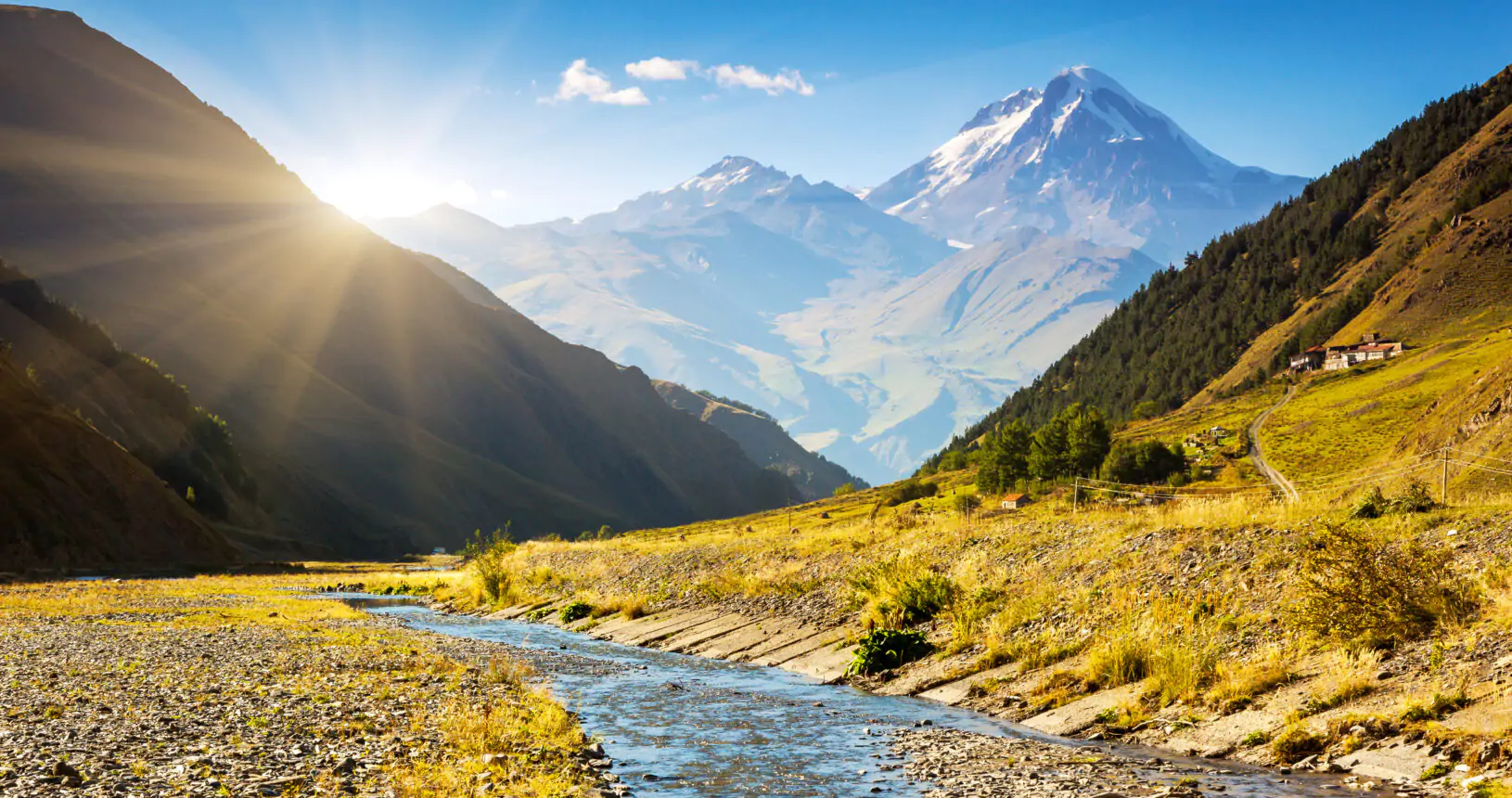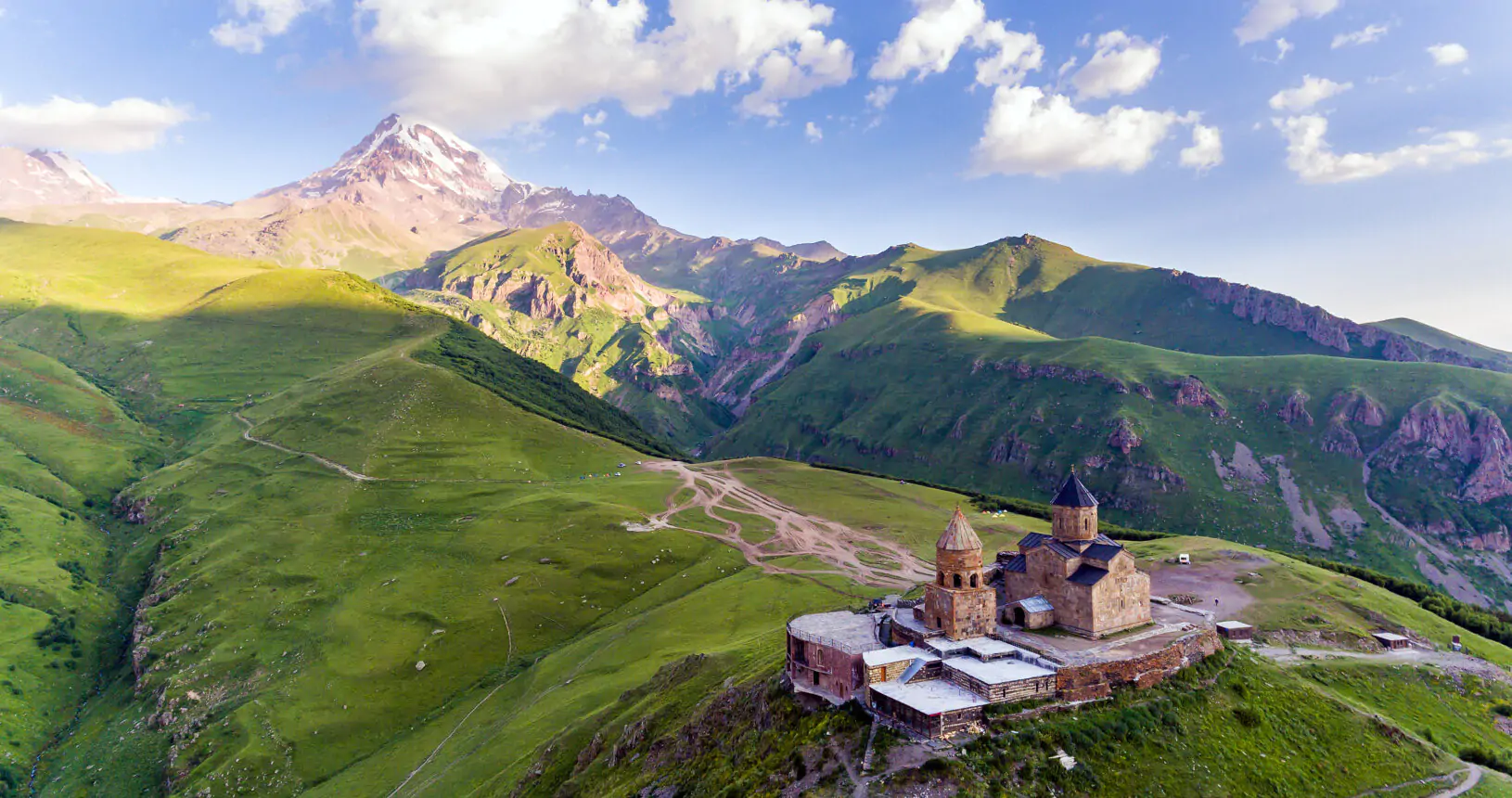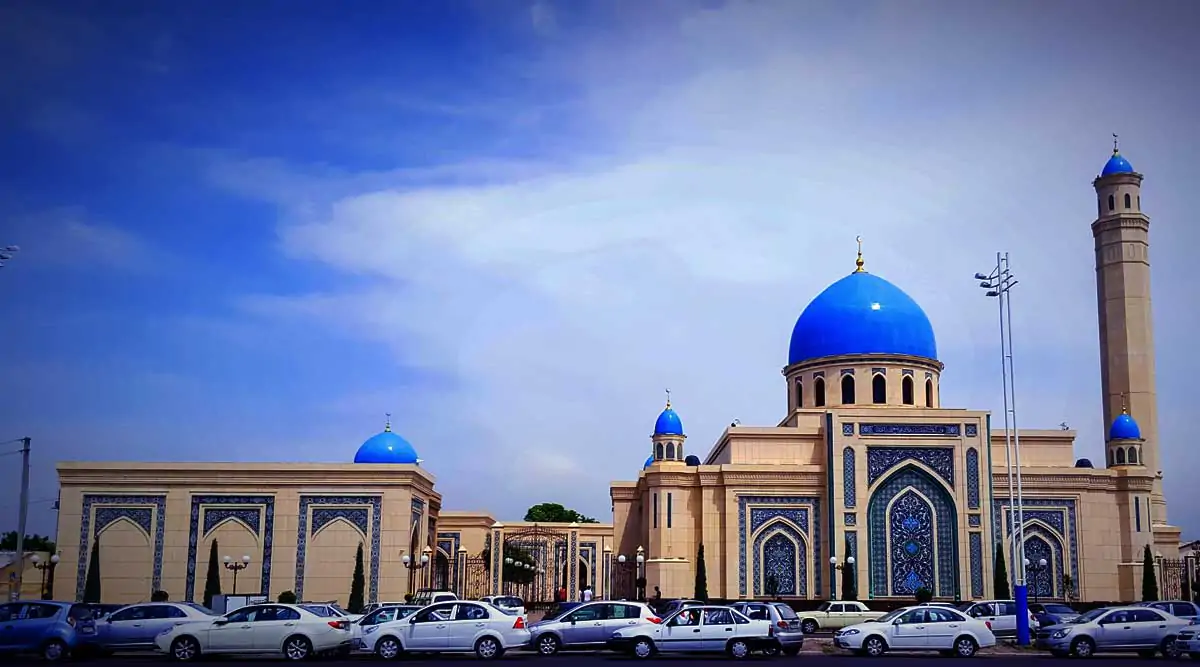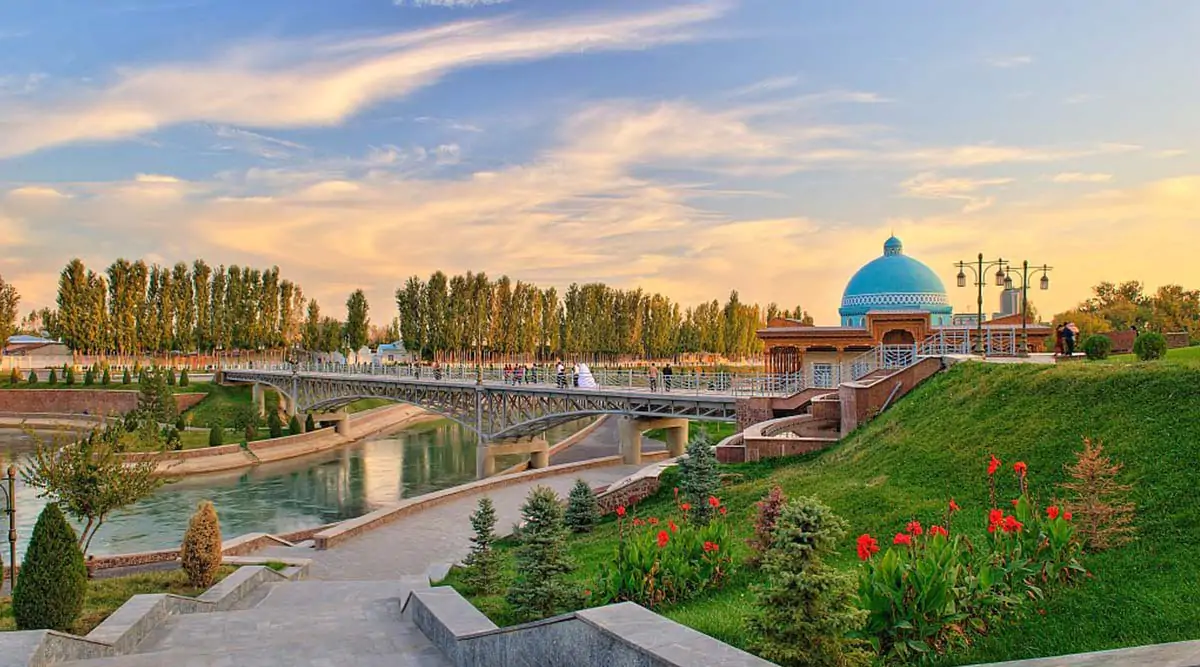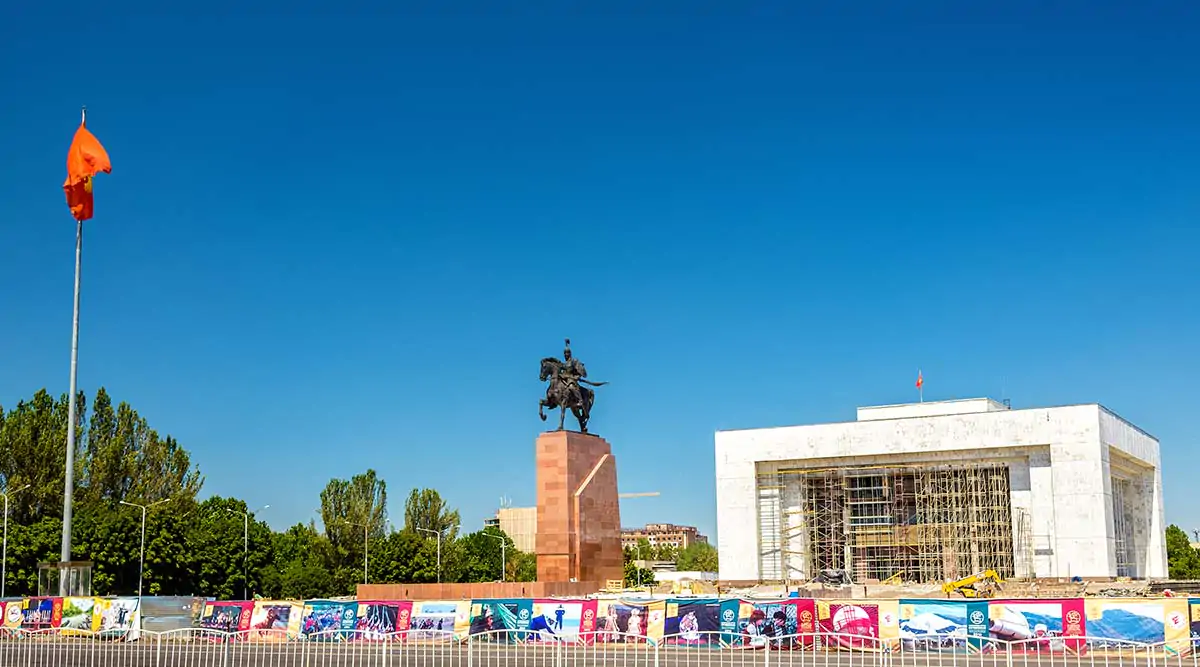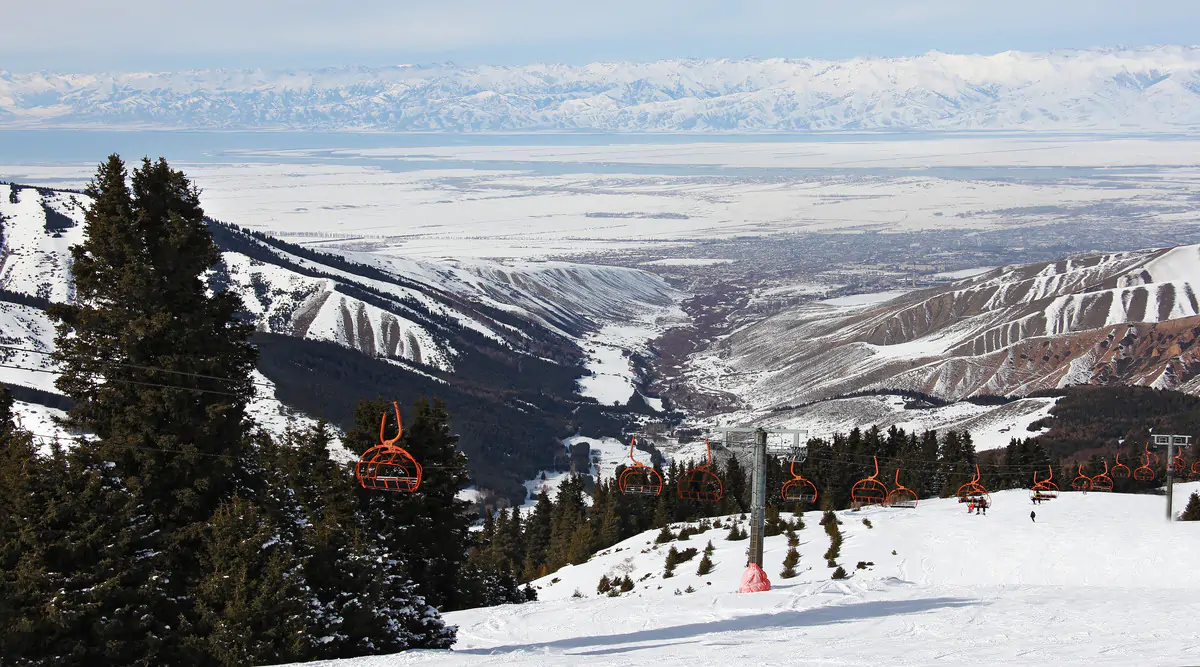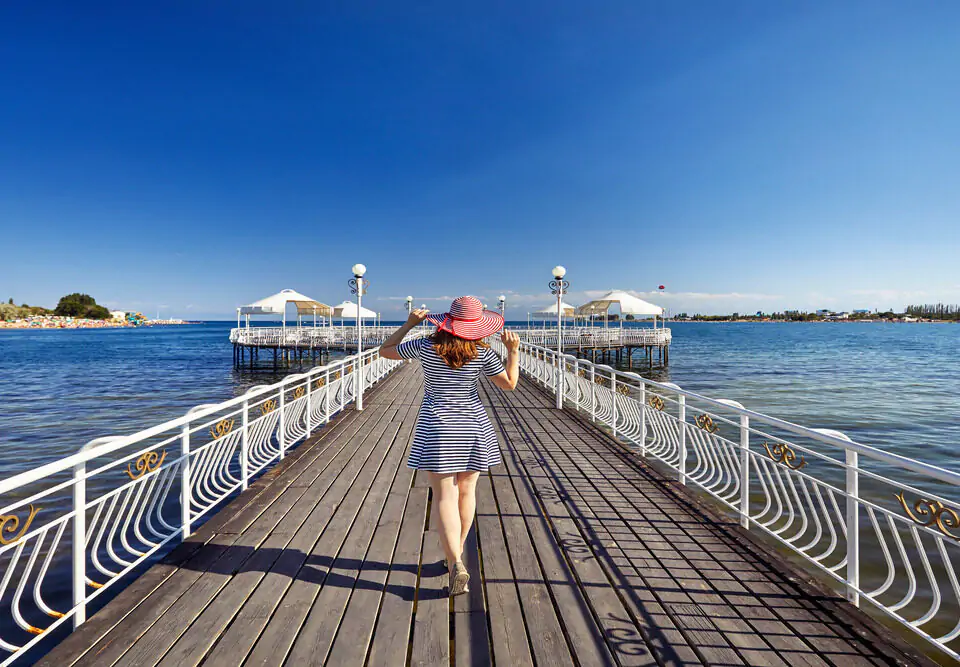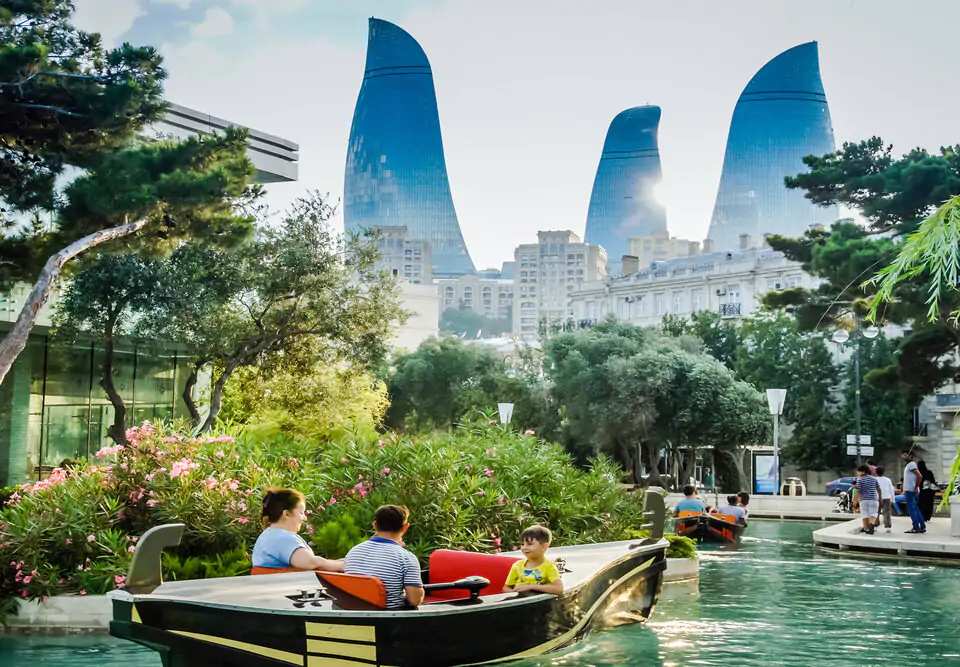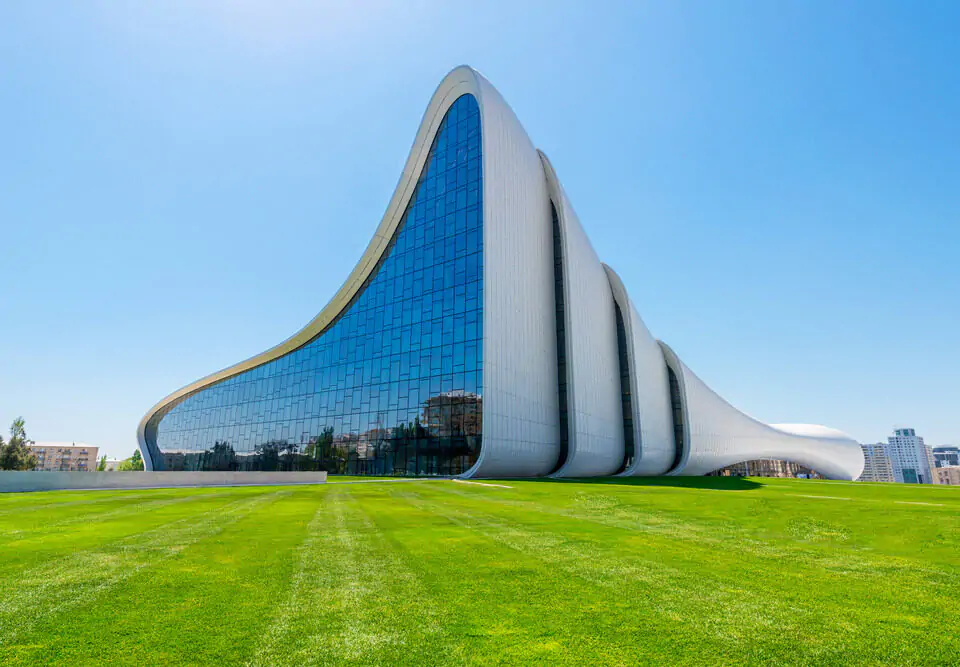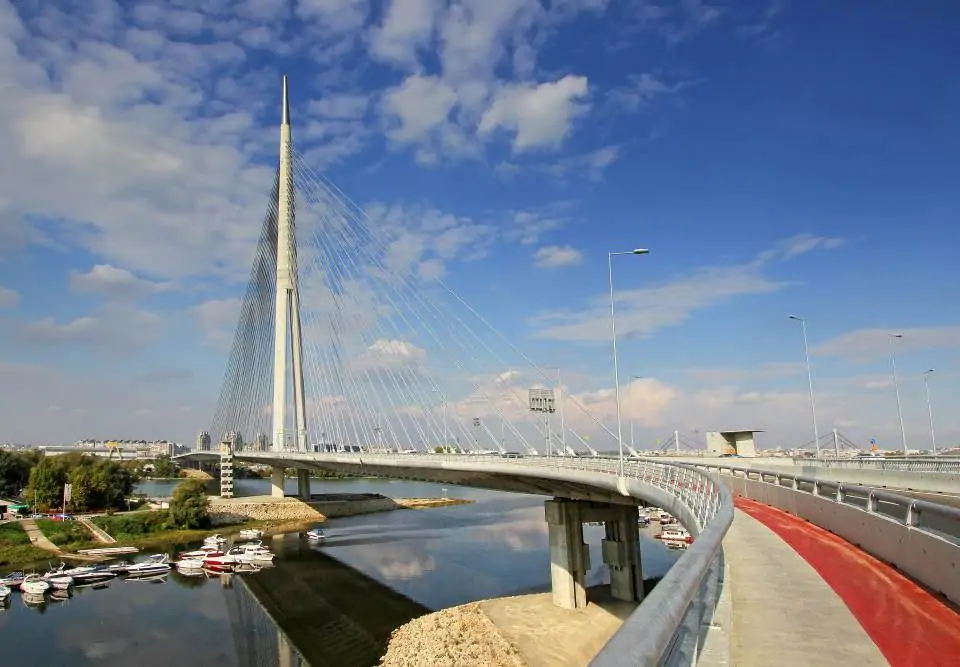Tbilisi Georgia + Baku Azerbaijan Tour Package – 5 Nights / 6 Days
Destination Details
Package Overview
Tbilisi is the capital of the country of Georgia. Its cobblestoned old town reflects a long, complicated history, with periods under Persian and Russian rule. Its diverse architecture encompasses Eastern Orthodox churches, ornate art nouveau buildings, and Soviet Modernist structures. Looming over it all are Narikala, a reconstructed 4th-century fortress, and Kartlis Deda, an iconic statue of the “Mother of Georgia.
”Baku, the capital and commercial hub of Azerbaijan, is a low-lying city with coastline along the Caspian Sea. It's famed for its medieval walled old city, which contains the Palace of Shirvanshahs, a vast royal complex, and the Iconic Stone Maiden Tower. Contemporary landmarks include the Zaha Hadid–designed Heydar Aliyev Center, and the Flame Towers, 3 pointed skyscrapers covered with LED screens..
Arrival day, Tbilisi
Tbilisi city tour
Meals: Breakfast
Tbilisi - Ananuri - Gudauri - Kazbegi
Meals: Breakfast
Tbilisi - Red Bridge (border between Georgia and Azerbaijan)
Meals: Breakfast
Sightseeing tour around Baku
Meals: Breakfast
Transfer to the Baku airport
Meals: Breakfast
- Transportation as per program by comfortable Vehicle private basis
- 03 accommodation in Tbilisi in 4* Astoria, City Avenue or similar
- 2 Night In Baku
- Sightseen As Per Itinerary
- Round way airport transfers on private basis
- Breakfast included
- Entrance fees
- 4X4 cars in Kazbegi
- 1 bottle of 0.5 l. water p/p
- Flights
- Travel insurance
- Alcoholic beverages
- Meals and drinks
- Entrance in sulfur bathes
Travel Guide

- GEORGIA
- BATUMI
- 153,909 KM²
- 12°C, WIND
- MON 12:19 AM
- GEORGIAN LARI
- GEORGIAN
- 4.477 MILLION
General Information About Georgia
Georgia, a country at the intersection of Europe and Asia, is a former Soviet republic that’s home to Caucasus Mountain villages and Black Sea beaches. It’s famous for Vardzia, a sprawling cave monastery dating to the 12th century, and the ancient wine-growing region Kakheti. The capital, Tbilisi, is known for the diverse architecture and mazelike, cobblestone streets of its old town.

The nation of Georgia was first unified as a kingdom under the Bagrationi dynasty by the King Bagrat III of Georgia in the 9th to 10th century, arising from a number of predecessor states of ancient kingdoms of Colchis and Iberia. The kingdom of Georgia flourished and reached its golden age during the 10th to 12th centuries under King David IV the Builder and Queen Tamar the Great, and fell to the Mongol invasion by 1243, and after a brief reunion under George V the Brilliant to the Timurid Empire. By 1490, Georgia was fragmented into a number of petty kingdoms and principalities, which throughout the Early Modern period struggled to maintain their autonomy against Ottoman and Persian domination until Georgia was finally annexed by the Russian Empire in 1801, which got nominally confirmed in 1813. After a brief bid for independence with the Democratic Republic of Georgia of 1918–1921, Georgia was part of the Transcaucasian Socialist Federative Soviet Republic from 1922 to 1936, and then formed the Georgian Soviet Socialist Republic until the dissolution of the Soviet Union. The current republic of Georgia has been independent since 1991.
The first president Zviad Gamsakhurdia stoked Georgian nationalism and vowed to assert Tbilisi's authority over Abkhazia and South Ossetia. Gamsakhurdia was deposed in a bloody coup d'état within the same year and the country became embroiled in a bitter civil war, which lasted until 1995. Supported by Russia, Abkhazia and South Ossetia achieved de facto independence from Georgia but did not gain widespread international recognition. The Rose Revolution forced Eduard Shevardnadze to resign in 2003. The new government under Mikheil Saakashvili prevented the secession of a third breakaway republic in the Adjara crisis of 2004, but the conflict with Abkhazia and South Ossetia led to the 2008 Russo–Georgian War and tensions with Russia remain unresolved..
Savannah
Savannah is a beautiful historical town. Houses from 1840s are preserved perfectly and residents here really enjoy the historical preservation mode of the town. Moreover, the food here is fantastic. Sites you have to see include beaches, roundhouse museum, etc. You kids would really enjoy the steam train!
Helen
Helen is a mountain town in the north of Georgia. One thing special about this town is Bavaria style. Besides, there is a lot of hiking to do in the mountain area. Do check out Helen if you don’t have the money to go to Germany!
Madison
Madison is a small town with a population around 3000 to 4000 people. It feels like a quiet and peaceful version of Savannah. The legend of the town says that Madison was not burned down during civil war because it was too beautiful. We will buy that.
Athens
The home of Georgia Bulldogs, Athens, really means something to a true Georgian. For us non-Georgians, it’s even worthwhile just seeing the crazy crowd during a Georgia bulldog game. Besides, it’s also famous for the music and Georgia museum of Art. So this town is definitely a combination of art and sport. Okefenokee National Wildlife Refuge 400,000 acres of swampland, Okefenokee National Wildlife Refuge, is not a city but a national park. When you go to Okefenokee, it is highly recommended to rent a canoe or go to a canoe trip. You will find yourself in the middle of a swampland and be impressed by all the staff you had never seen. St. Simon’s Island St. Simon’s Island is an island near the border of Florida. It is a great place to lie down and chill out on the sandy beach. It has beautiful scenery and is definitely a great place to relax. Have fun!
Macon
Macon is not just another Savannah. It has tons of houses on the national historical register. Like many of other Georgia towns, Macon is also proud of its historical preservation. Moreover, they have Georgia Sports Hall of Fame and Music Hall of Fame in Macon. Definitely check them out if you are a sport fan or music fan. Also, Macon is the home of soul food.
Augusta
Augusta is the second oldest town in Georgia. It is not only famous for the Masters’ Tournament, but also for its beautiful and cute historic center. The tournament is not the only reason you should go to Augusta.
Thomasville
Thomasville is a town in southeast Georgia. It has lots of plantation houses. It’s definitely a good idea to tour around the beautiful town,
Atlanta
Here comes Atlanta, home of CNN, Coca-Cola, and horrible traffic. Except for its traffic, the city is actually very cool. There are countless things you should do in Atlanta, but one thing particular is to visit the world of Coca-Cola. Others range from the numerous professional sports activities & former Olympic venues to historic homes and museums in the city.

People Of Georgia
Georgians are a nation and ethnic group who constitute a majority of the population in Georgia. Large Georgian communities are also present throughout Russia, Turkey, Greece, Ukraine, Iran, United States, and to a lesser extent throughout the European Union. Georgians arose from the ancient Colchian and Iberian civilizations. They embraced Christianity in the early 4th century and now majority of Georgians are Eastern Orthodox Christians and most follow their national autocephalous Georgian Orthodox Church. There are also small Georgian Catholic and Muslim communities in Tbilisi and Adjara, as well as a significant number of irreligious Georgians. A complex process of nation formation has resulted in a diverse set of geographic subgroups of Georgians, each with its characteristic traditions, manners, dialects and, in the case of Svans and Mingrelians, own regional languages. The Georgian language, with its own unique writing system and extensive written tradition going back to the 5th century, is the official language of Georgia as well as the language of literacy and education of all Georgians living in the country.
Located on the crossroads of predominantly Christian Europe and Muslim Western Asia, Georgian people have maintained their Christian identity in the face of great pressure from neighboring Muslim empires. By the early 11th century they formed a unified Kingdom of Georgia and inaugurated the Georgian Golden Age, a height of political and cultural power of the nation. This lasted until being weakened by Mongol invasions, as well as internal divisions following the death of George V the Brilliant, the last of the great kings of Georgia. Thereafter and throughout the early modern period Georgians became politically fractured and fell into decline due to the onslaught of various hostile empires, including the Ottoman Empire and successive dynasties of Persia. To ensure Georgia's survival, in 1783 Heraclius II of Georgia forged an alliance with the Russian Empire, which Georgians viewed as a replacement for their fallen traditional ally — Byzantine Empire. The Russo-Georgian alliance, however, backfired as Russia was unwilling to fulfill the terms of the treaty, proceeding to annex the troubled kingdom in 1801. Georgians briefly reasserted their independence from Russia under the First Georgian Republic from 1918-1921, and finally, in 1991 from the Soviet Union..
The climate of Georgia is typical of a humid subtropical climate with most of the state having mild winters and hot summers. The Atlantic Ocean on the east coast of Georgia and the hill country in the north impact the state's climate.Also, the Chattahoochee River divides Georgia into separate climatic regions with the mountain region to the northwest being colder than the rest of the state, the average temperatures for that region in January and July being 39 °F and 78 °F respectively.Winter in Georgia is characterized by mild temperatures and little snowfall around the state, with colder, snowier, and icier weather more likely across northern and central Georgia. Summer daytime temperatures in Georgia often exceed 90 °F. The state experiences widespread precipitation. Tornadoes and tropical cyclones are common.

Currency Of Georgia
The lari is the currency of Georgia. It is divided into 100 tetri. The name lari is an old Georgian word denoting a hoard, property, while tetri is an old Georgian monetary term used in ancient Colchis from the 6th century BC. Earlier Georgian currencies include the maneti and abazi. There is no limitation on the amount of money exchanged. ATM machines in Yerevan function in accordance with the Plus Global Access Network, Visa, and MasterCard systems. The exchange rate in Yerevan has been quite stable and the monetary policies of the Central Bank have been acknowledged by the international community to be largely successful. Recently, the strong financial and economic results of the Armenian banking sector have led to regained confidence of population in the banking system, as well as a broadened scope and improved quality of banking services. Currancy Excange Rate Aproxx : 1 Usd = 400 Amd

Nightlife Of Georgia
Nightlife in Georgia is still at a very nascent stage and is mostly limited to the capital city of Tbilisi. Georgian people are friendly and like to party hard in the city’s various clubs and other nightlife hotspots. Most of the city’s clubs, cafes and restaurants are based in Rustaveli Avenue. Georgian dancers are renowned for their high quality productions and you can get a glimpse of the classy productions at the Rustaveli Georgian Drama Theatre which has a reputation of churning out high quality Shakespeare productions. Another option is to visit the Georgian folk theatre, Nabadi which plays host to amazing performances highlighting the country’s rich history, culture and traditions. There are several bars in Tbilisi and some of the popular ones are Salve, Bude Bar and Success. Night office, Tunnel Club, Moulin Electrique and Traffic are some of the popular nightclubs with amazing acoustic systems which stay open all night. Kafe Literaturuli in a unique café, and is a good spot for book lovers and avid readers while Paliashvili Opera & Ballet Theatre offers a unique insight into the performing arts of Georgia. Georgia National Music Center, Marjanishvili Theatre and Jazz Club Non Stop are amazing options to spend a magical night in Tbilisi. Georgia’s nightlife is slowly and steadily matching the European standards.
Georgian is a Kartvelian language spoken by Georgians. It is the official language of Georgia. Georgian is written in its own writing system, the Georgian script. Georgian is the literary language for all regional subgroups of Georgians, including those who speak other Kartvelian languages: Svans, Mingrelians and the Laz. Georgian shares a common ancestral language with Svan and Mingrelian/Laz. Georgian as separate from the other Kartvelian languages would have emerged in the 1st millennium BC in Caucasian Iberia. The earliest allusion to spoken Georgian may be a passage of the Roman grammarian Marcus Cornelius Fronto in the 2nd century AD: Fronto imagines the Iberians addressing the emperor Marcus Aurelius in their "incomprehensible tongue". The evolution of Georgian into a written language was a consequence of the conversion of the Georgian elite to Christianity in the mid-4th century. The new literary language was constructed on an already well-established cultural infrastructure, appropriating the functions, conventions, and status of Aramaic, the literary language of pagan Georgia, and the new national religion.
The first Georgian texts are inscriptions and palimpsests dating to the 5th century. Georgian has a rich literary tradition. The oldest surviving literary work in Georgian is the "Martyrdom of the Holy Queen Shushanik" by Iakob Tsurtaveli, from the 5th century AD. In the 11th century, Old Georgian gives rise to Middle Georgian, the literary language of the medieval kingdom of Georgia. The Georgian national epic, "The Knight in the Panther's Skin", by Shota Rustaveli, dates from the 12th century. In 1629, Alphabetum Ibericum sive Georgianum cum Oratione and Dittionario giorgiano e italiano were the first two books printed in the Georgian language using movable type in Rome supported by the Congregation for the Evangelization of Peoples of the Catholic Church for their evangelical movement in Georgian kingdoms. This marked the beginning of what is considered the Modern Georgian language.

Tbilisi- Hotel Iveria Inn
GEORGIA
GEORGIA, BATUMI










